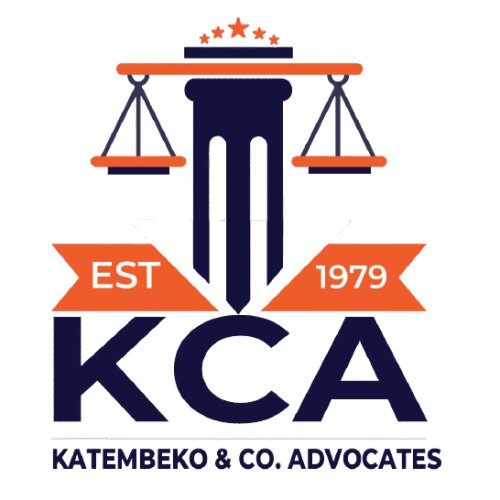Best Data Center & Digital Infrastructure Lawyers in Kampala
Share your needs with us, get contacted by law firms.
Free. Takes 2 min.
List of the best lawyers in Kampala, Uganda
About Data Center & Digital Infrastructure Law in Kampala, Uganda
Data center and digital infrastructure law is an evolving legal field in Kampala, Uganda, that deals with issues surrounding the construction, operation, maintenance, and management of data storage and processing facilities, as well as the networks and technologies that support digital communications. Given the rapid digitization of business processes, e-commerce growth, and the increased demand for cloud computing and data storage, understanding the local regulatory environment is essential for business owners, investors, and other stakeholders. The government of Uganda is actively encouraging digital transformation, but this comes with heightened scrutiny regarding data security, privacy, compliance, and regulation of digital infrastructure.
Why You May Need a Lawyer
Legal assistance is vital in navigating the multifaceted regulations and compliance obligations in the data center and digital infrastructure sector in Kampala. Here are common situations where professional legal help may be necessary:
- Negotiating contracts for data center construction, leasing, or operation
- Ensuring compliance with data protection and privacy laws
- Addressing concerns regarding cross-border data transfers
- Managing regulatory approvals, licensing, and compliance with the Uganda Communications Commission
- Resolving disputes involving service level agreements or outages
- Protecting intellectual property related to software or hardware solutions
- Dealing with cybersecurity incidents and breach notifications
- Guiding mergers and acquisitions involving digital infrastructure assets
No matter the complexity of your involvement with data centers or digital infrastructure, a lawyer can help safeguard your legal interests and ensure adherence to local laws.
Local Laws Overview
Uganda's legal landscape for data centers and digital infrastructure is shaped by several statutes, regulations, and regulatory bodies. The Data Protection and Privacy Act, 2019 is especially significant, as it governs how personal data is collected, stored, processed, and transferred within Uganda. Compliance with this law is essential for anyone operating data centers or handling digital infrastructure.
The Uganda Communications Act, 2013 establishes the regulatory roles of the Uganda Communications Commission, including licensing and oversight of telecommunications infrastructure, which extends to digital infrastructure. For international data flows, the law requires careful evaluation of cross-border data transfer regulations. Additional environmental regulations may apply regarding the construction and operation of physical data centers.
Entities must also pay attention to cybersecurity guidelines, especially those issued by the National Information Technology Authority Uganda (NITA-U), as these lay out the minimum security requirements and compliance protocols for all critical digital infrastructure.
Frequently Asked Questions
What is classified as digital infrastructure in Kampala, Uganda?
Digital infrastructure refers to the physical and virtual assets supporting storage, processing, transmission, and security of digital information. This includes data centers, cloud servers, fiber optic networks, and related hardware and software systems.
Are there specific laws for data centers in Uganda?
Yes, Uganda has laws such as the Data Protection and Privacy Act, 2019 and regulatory frameworks from the Uganda Communications Commission and NITA-U that directly govern the ownership, operation, and use of data centers.
Do data center operators need a license?
In most cases, yes. Operating a data center often requires licenses or registration from the Uganda Communications Commission, especially if it involves telecommunications services or processing subscriber data.
What are the main compliance requirements for data privacy?
Operators must comply with the Data Protection and Privacy Act, 2019, which mandates lawful, fair, and transparent processing of personal data, obtaining consent from data subjects, ensuring data security, and honoring individuals' rights to access and correct their data.
How is cross-border data transfer regulated?
Cross-border transfer of personal data is restricted unless the destination country guarantees adequate data protection or data subject consent has been obtained, according to Ugandan law.
What are the penalties for non-compliance?
Penalties for violating data protection or digital infrastructure regulations can include fines, suspension or revocation of operating licenses, and in some cases criminal liability for severe breaches.
How do disputes about data center contracts usually get resolved?
Most contracts specify arbitration or mediation as dispute resolution mechanisms, but cases can also be litigated in Ugandan courts if informal methods fail.
What cybersecurity regulations apply to data centers?
Data centers are subject to the NITA-U cybersecurity guidelines, which mandate risk assessments, incident response protocols, and security measures to safeguard data against unauthorized access or breaches.
Can foreign companies own or operate data centers in Kampala?
Yes, but they must comply with all local laws, obtain necessary licenses, and may face additional scrutiny on matters such as data sovereignty and cross-border data transfers.
What should I do if my data is compromised in a Ugandan data center?
Promptly notify the affected parties and the Personal Data Protection Office, investigate the breach, and take corrective actions in line with the Data Protection and Privacy Act, 2019. Legal counsel can guide appropriate breach response steps.
Additional Resources
Below is a list of local bodies and resources related to data center and digital infrastructure management and compliance in Kampala, Uganda:
- Uganda Communications Commission (UCC) - Regulates communications and digital infrastructure
- National Information Technology Authority Uganda (NITA-U) - Oversees information technology standards and cybersecurity
- Personal Data Protection Office - Supervises enforcement of data protection and privacy laws
- Ministry of Information and Communications Technology and National Guidance
- Local law firms with ICT and technology practice groups
- Uganda Law Society - For lawyer referrals and legal information
Next Steps
If you require legal assistance with a data center or digital infrastructure issue in Kampala, Uganda, it is important to act proactively:
- Identify your specific legal needs, such as contract drafting, compliance guidance, dispute resolution, or licensing support
- Gather all relevant documents including contracts, policies, and any correspondence with regulatory authorities
- Consult a lawyer or law firm experienced in ICT, data protection, and infrastructure projects in Uganda
- Schedule an initial consultation to assess your options and potential risks
- Follow your lawyer’s advice to ensure compliance and protect your interests throughout your engagement with digital infrastructure
Staying informed and seeking timely legal advice will help you keep your data center operations legally secure and future ready.
Lawzana helps you find the best lawyers and law firms in Kampala through a curated and pre-screened list of qualified legal professionals. Our platform offers rankings and detailed profiles of attorneys and law firms, allowing you to compare based on practice areas, including Data Center & Digital Infrastructure, experience, and client feedback.
Each profile includes a description of the firm's areas of practice, client reviews, team members and partners, year of establishment, spoken languages, office locations, contact information, social media presence, and any published articles or resources. Most firms on our platform speak English and are experienced in both local and international legal matters.
Get a quote from top-rated law firms in Kampala, Uganda — quickly, securely, and without unnecessary hassle.
Disclaimer:
The information provided on this page is for general informational purposes only and does not constitute legal advice. While we strive to ensure the accuracy and relevance of the content, legal information may change over time, and interpretations of the law can vary. You should always consult with a qualified legal professional for advice specific to your situation.
We disclaim all liability for actions taken or not taken based on the content of this page. If you believe any information is incorrect or outdated, please contact us, and we will review and update it where appropriate.
















